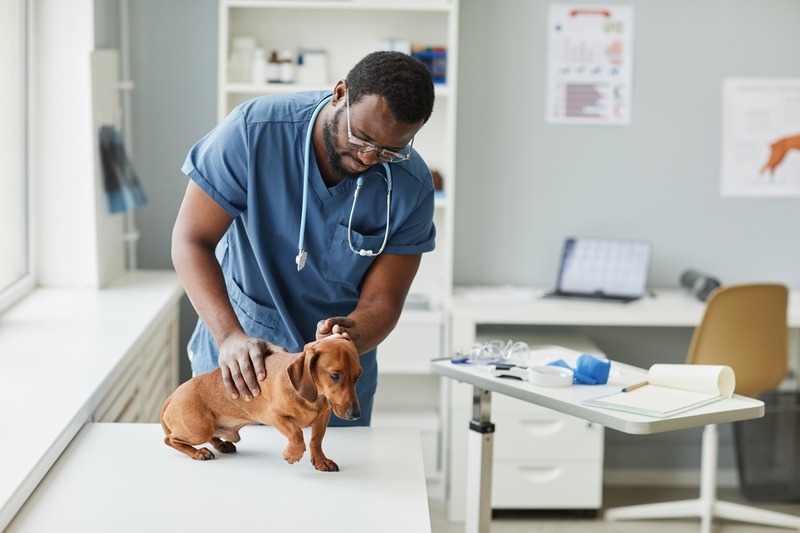As a pet parent, there’s nothing you want more than to ensure your furry friend is healthy and happy. A complete health check-up can be integral to achieving this. Often, we need to pay more attention to the signs our pets could be showing and miss out on early interventions. So, let’s break down exactly what a comprehensive health screening for your pet entails.
Understanding the Importance of Regular Check-Ups
Regular vet visits are like humans’ routine medical exams—they help catch issues early and manage ongoing health. By scheduling periodic wellness exams, you’re taking preventative steps towards a longer, healthier life for your pet.
Initial Examination
When you first step into a veterinary clinic, the professionals start with a thorough physical examination of your pet. This is a nose-to-tail check, which involves the vet looking at your pet’s overall physique and condition, from fur coat to toenails:
-
Body condition and weight
-
Skin and coat health
-
Ears, eyes, and nose
-
Mouth, teeth, and gums
-
Heart and lung function
-
Abdominal palpation
-
Musculoskeletal Evaluation
A Concord veterinary clinic typically represents the kind of establishment that offers end-to-end healthcare for your pet. Complete veterinary care often includes preventive care, diagnostic services, surgical procedures, and emergency services, focusing on your pet’s life stages and changing needs.
Diagnostic Assessments
After the preliminary physical exam, your vet may recommend diagnostic tests based on your pet’s age, breed, or the potential risks they might face. These include:
-
Blood Tests: Your veterinarian may recommend tests for diagnostic assessments following the preliminary physical exam. These tests can provide valuable insights into your pet’s overall health, detecting infections, organ function abnormalities, or blood-related conditions.
-
Urine Analysis: Urine analysis is a standard diagnostic test recommended by veterinarians. It helps assess kidney function, identify urinary tract infections, and detect other issues related to the urinary system.
-
Stool Sample Testing: Stool sample testing is often conducted to check for parasites, gastrointestinal issues, or infections. This diagnostic assessment aids in understanding your pet’s digestive health.
-
X-rays: X-rays are a non-invasive imaging technique used for diagnostic purposes. They can reveal bone structure, identify fractures, and help diagnose conditions affecting the internal organs or soft tissues.
-
Ultrasounds: Ultrasounds are imaging tests using sound waves to represent internal structures visually. They are commonly employed to examine organs, detect abnormalities, and assess conditions that may not be visible through X-rays.
Dental Checks
Like humans, pets can develop dental problems such as tartar build-up, gum disease, and tooth decay. The veterinarian will examine your pet’s teeth and gums to look for signs of oral issues during the examination. Regular pet dental care, including professional cleanings, can prevent many dental diseases.
Pet Vaccination
Vaccinations are crucial in safeguarding your pet from contagious and potentially deadly diseases. Dog vaccinations in Concord, CA, offer a range of immunizations tailored to regional health threats and your pet’s lifestyle. Pet vaccination schedules usually start when they are a few weeks old and continue throughout their life.
Nutrition and Weight Management
Feeding your pet a balanced diet is integral to maintaining overall health. Your vet will assess your pet’s dietary habits and weight to guide proper nutrition, feeding routines, and weight management, which are critical components of a complete health check-up.
Puppies and Kittens vs. Senior Pets
The care your pet needs changes as they age. Let’s take a look at the differences in wellness checks for younger versus older pets:
-
Puppies and Kittens: Frequency of visits, deworming, and initial pet vaccinations
-
Senior Pets: Focus on screenings for age-related diseases, joint care, and metabolic concerns
Behavioral Analysis
Behavioral changes can signal underlying health problems. A complete health check-up will also encompass evaluating your pet’s behavior. This discussion can shed light on issues like anxiety, depression, or cognitive dysfunction.
Post-Check-Up
-
Discussion of Findings: Following the examination and diagnostic tests, your veterinarian will discuss the findings. This includes sharing insights into your pet’s overall health status, identifying any medical conditions or concerns, and addressing specific observations made during the check-up.
-
Insights and Answers: Your vet will provide valuable insights into your pet’s health, answering any questions you may have. This is an opportunity for you to understand better your pet’s well-being and any necessary measures for their care.
-
Care Plan Suggestions: Your veterinarian may suggest a comprehensive care plan based on the examination results. This plan may include specific treatments for any medical conditions detected, adjustments to the existing wellness plan, and recommendations for ongoing care.
-
Treatment for Medical Conditions: Your vet will discuss treatment options if medical conditions are identified. This could involve medications, therapies, or other interventions tailored to address the specific health needs of your pet.
-
Wellness Plan Adjustments: The vet may recommend adjustments to your pet’s wellness plan. This could include changes in diet, exercise routines, or preventive measures to maintain optimal health.
-
Follow-Up Visits: Depending on the findings, your veterinarian may suggest follow-up visits or ongoing assessments to monitor your pet’s progress. Regular check-ups are essential for preventive care and early detection of emerging health issues.
Wrapping Up
A complete pet health check-up is crucial to being a responsible pet parent. It encompasses many assessments—from physical exams to diagnostic tests, including vital components like dental care, thorough health evaluations, and shielding through pet vaccinations. Remember, the well-being of our furry companions is in our hands, so it’s essential to stay informed and proactive about their health needs.


